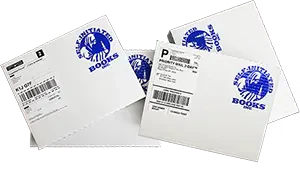
1
/
of
7
How to Read Egyptian Hieroglyphs: A Step-By-Step Guide
How to Read Egyptian Hieroglyphs: A Step-By-Step Guide
In stock
- Ships Same Business Day
- International Delivery-Duty Unpaid*
Regular price
R 309.00 ZAR
Sale price
R 309.00 ZAR
Regular price
R 617.00 ZAR
Unit price
/
per
Shipping calculated at checkout.
🇦🇪 Made in United Arab Emirates
Title: How to Read Egyptian Hieroglyphs: A Step-By-Step Guide to Teach Yourself (Revised 1st ed.)
Contributor(s): Mark Collier (author), Bill Manley (author), Richard Parkinson (illustrator)
ISBN: 9780520239494
Hardcover: 179 pages
Features: Illustrated, reference tables, key to exercises, index.
Dimensions: 24.38 x 16.26 x 1.52 cms; 520 g
Publisher: University of California Press (2003)
Condition: New
Hieroglyphs are pictures used as signs in writing. When standing before an ancient tablet in a museum or visiting an Egyptian monument, we marvel at this unique writing and puzzle over its meaning. Now, with the help of Egyptologists Mark Collier and Bill Manley, museum-goers, tourists, and armchair travellers alike can gain a basic knowledge of the language and culture of ancient Egypt.
Collier and Manley's novel approach is informed by years of experience teaching Egyptian hieroglyphs to non-specialists. Using attractive drawings of actual inscriptions displayed in the British Museum, they concentrate on the kind of hieroglyphs readers might encounter in other collections, especially funerary writings and tomb scenes. Each chapter introduces a new aspect of hieroglyphic script or Middle Egyptian grammar and encourages acquisition of reading skills with practical exercises.
The texts offer insights into the daily experiences of their ancient authors and touch on topics ranging from pharaonic administration to family life to the Egyptian way of death. With this book as a guide, one can enjoy a whole new experience in understanding Egyptian art and artifacts around the world.
Table of Contents:
Introduction to the Revised Edition
1. Hieroglyphs
2. More Uses of Hieroglyphs
3. Special Writings
4. Scenes and Captions
5. Description
6. Further Aspects of Description
7. Characterisation
8. The Future
Hieroglyphic Sign-Lists for the Exercises
Reference Tables
Egyptian-English Vocabulary
Key to the Exercises
Bibliography and Further Reading
Index
Mark Collier is Lecturer in Egyptology at the University of Liverpool. Bill Manley teaches Egyptology at the University of Glasgow. Richard Parkinson is Curator in the Department of Egyptian Antiquities at the British Museum.
Collier and Manley's novel approach is informed by years of experience teaching Egyptian hieroglyphs to non-specialists. Using attractive drawings of actual inscriptions displayed in the British Museum, they concentrate on the kind of hieroglyphs readers might encounter in other collections, especially funerary writings and tomb scenes. Each chapter introduces a new aspect of hieroglyphic script or Middle Egyptian grammar and encourages acquisition of reading skills with practical exercises.
The texts offer insights into the daily experiences of their ancient authors and touch on topics ranging from pharaonic administration to family life to the Egyptian way of death. With this book as a guide, one can enjoy a whole new experience in understanding Egyptian art and artifacts around the world.
Table of Contents:
Introduction to the Revised Edition
1. Hieroglyphs
2. More Uses of Hieroglyphs
3. Special Writings
4. Scenes and Captions
5. Description
6. Further Aspects of Description
7. Characterisation
8. The Future
Hieroglyphic Sign-Lists for the Exercises
Reference Tables
Egyptian-English Vocabulary
Key to the Exercises
Bibliography and Further Reading
Index
Mark Collier is Lecturer in Egyptology at the University of Liverpool. Bill Manley teaches Egyptology at the University of Glasgow. Richard Parkinson is Curator in the Department of Egyptian Antiquities at the British Museum.
More from this publisher:
University of California Press

Packed for a Journey | Share







